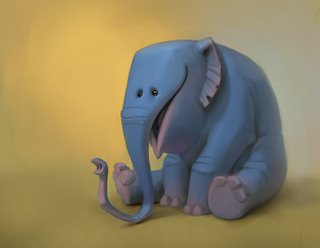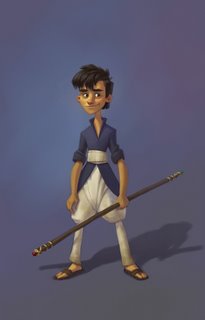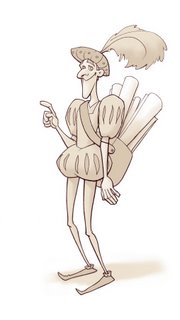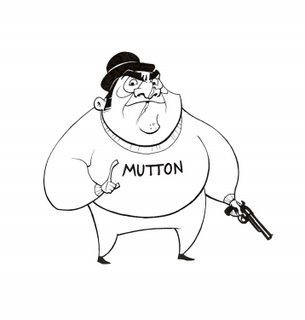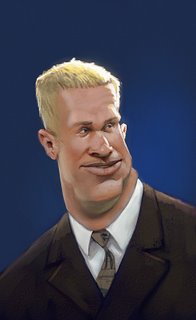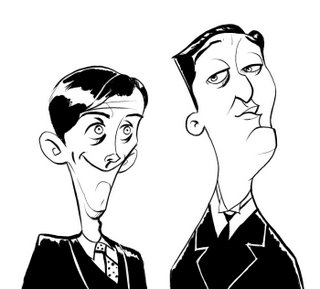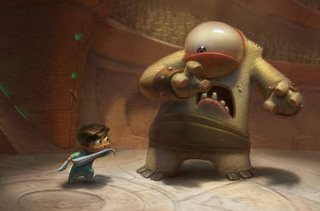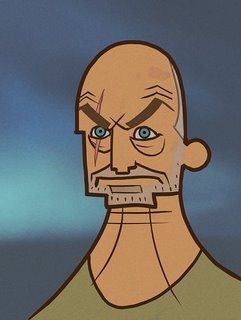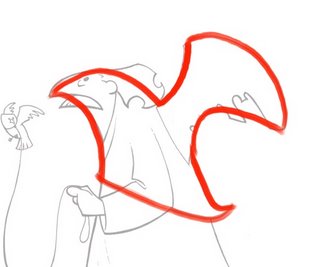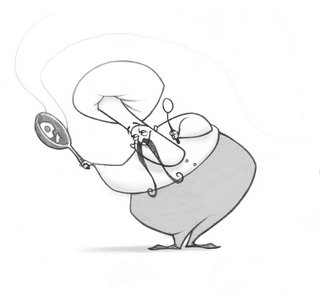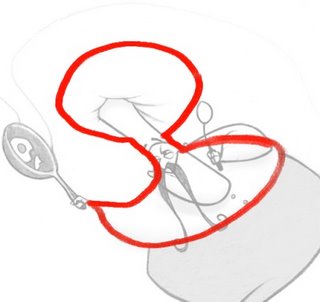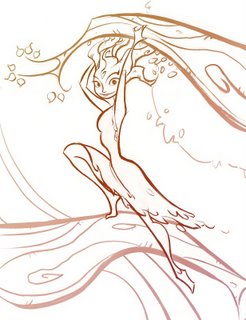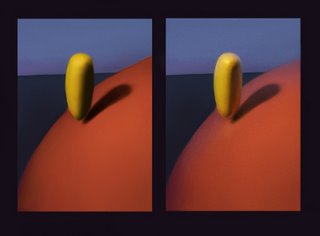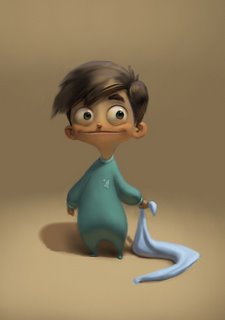Okay, I've got to get something out of my system. Throughout my classes today, I noticed many other people working on this caricature assignment. Some of them were either taking the assignment lightly or complaining about its relevance to character design. I'm not a great caricature artist, but I believe strongly in its value to character designers. So this post is for all those in my class who don't believe caricature is important:
In my opinion, caricature is the ultimate design exercise
. Think about how these elements are used by the very best caricature artists:
Line.
Shape.
Proportion.
Form.
Texture.
That list sounds familiar, hopefully! Caricature isn't just about distortion, recognition, and good rendering.
Good caricature is really about finding just the right design element(s) that simultaneously give a character both recognition
and appeal. This same principle applies to object and environment design. Usually in entertainment, audiences have only a split second to register what they are seeing, so recognition is essential. But recognition isn't enough by itself, since audiences lose interest quickly if what they see isn't appealing.
Sebastian Kruger isn't a great caricature artist just because he renders details so well. I think his caricatures would be just as effective even without his insane painting ability,
because he efficiently uses basic design elements (such as shape and line)
so that they simultaneously bring recognition and appeal to his characters.
For examples of how the principles of caricature result in good character design, look at the work of
Stephen Silver,
David Colman,
Shane Prigmore. I could provide a much longer list, but I think I've gone on for long enough now.
EDIT- A couple more thoughts I had this morning:
The very best live-action film designs also use a type of low-level caricature in their costume designs and makeup to make them easily readable and more appealing. The Pirates of the Caribbean movies are a good example of this.
There are a lot of bad caricatures out there---I'm sure you see them all the time. These caricatures are usually recognizable, and the people who draw them can feel proud for getting that part right. However, a drawing a million such caricatures won't make those people into good character designers because they aren't using the principles of design correctly, and their focus is usually only on recognition and not appeal. What I'm trying to get at is if caricature is exercise for designers, then the principles of design are the weights. If you're serious about design, you can't treat caricature just as a way to get cheap laughs.
